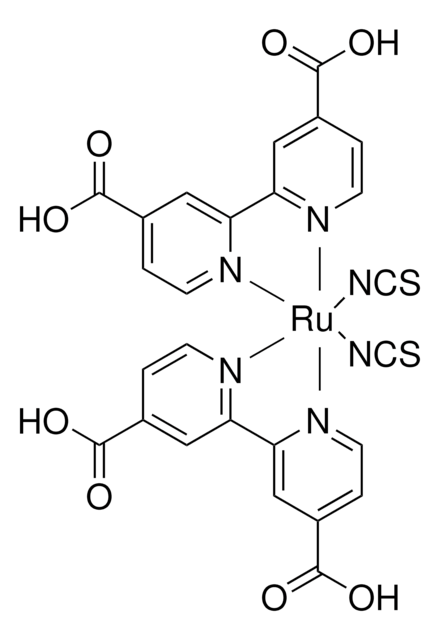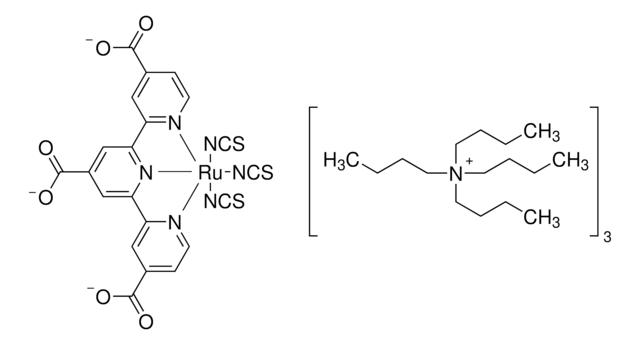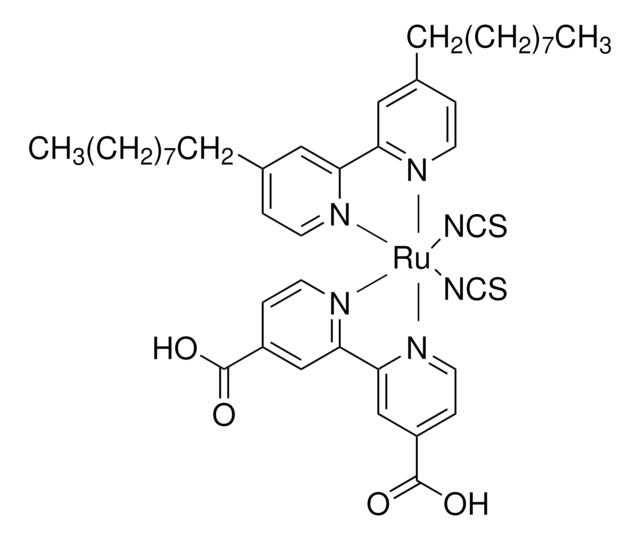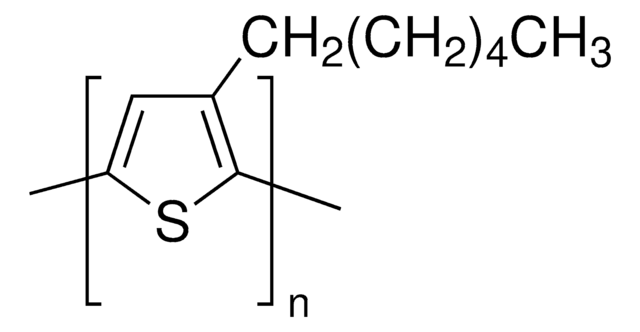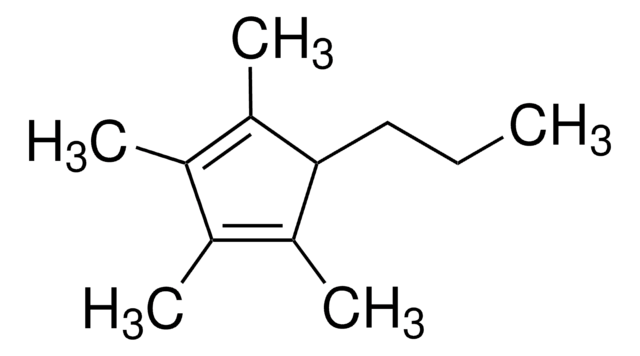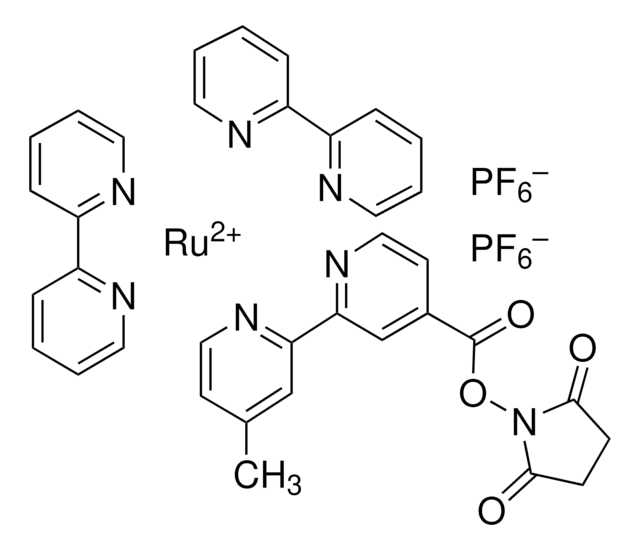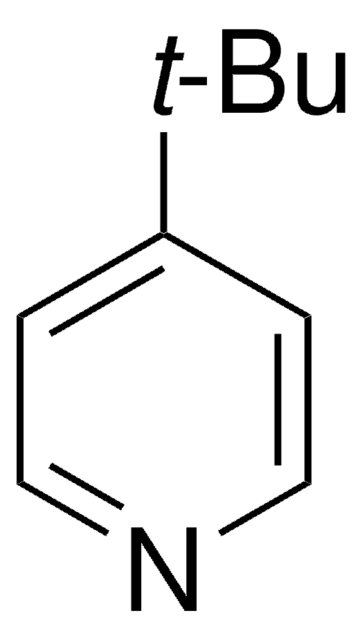703214
Di-tetrabutylammonium cis-bis(isothiocyanato)bis(2,2′-bipyridyl-4,4′-dicarboxylato)ruthenium(II)
95% (NMR)
Synonyme(s) :
Greatcell Solar®, N-719 dye
About This Item
Produits recommandés
Pureté
95% (NMR)
Forme
powder
Composition
Dye content, ≥90% HPLC
Pf
250-260 °C
λmax
534, 393, 313 nm (lit.)
Chaîne SMILES
S=C=N[Ru]N=C=S.CCCC[N+](CCCC)(CCCC)CCCC.CCCC[N+](CCCC)(CCCC)CCCC.OC(=O)c1ccnc(c1)-c2cc(ccn2)C([O-])=O.OC(=O)c3ccnc(c3)-c4cc(ccn4)C([O-])=O
InChI
1S/2C16H36N.2C12H8N2O4.2CNS.Ru/c2*1-5-9-13-17(14-10-6-2,15-11-7-3)16-12-8-4;2*15-11(16)7-1-3-13-9(5-7)10-6-8(12(17)18)2-4-14-10;2*2-1-3;/h2*5-16H2,1-4H3;2*1-6H,(H,15,16)(H,17,18);;;/q2*+1;;;2*-1;+2/p-2
Clé InChI
MQGCPZMVNHGIPF-UHFFFAOYSA-L
Description générale
Application
Informations légales
Greatcell Solar is a registered trademark of Greatcell Solar Materials Pty Ltd.
Mention d'avertissement
Danger
Mentions de danger
Conseils de prudence
Classification des risques
Resp. Sens. 1
Code de la classe de stockage
11 - Combustible Solids
Classe de danger pour l'eau (WGK)
WGK 3
Point d'éclair (°F)
Not applicable
Point d'éclair (°C)
Not applicable
Équipement de protection individuelle
dust mask type N95 (US), Eyeshields, Faceshields, Gloves
Faites votre choix parmi les versions les plus récentes :
Déjà en possession de ce produit ?
Retrouvez la documentation relative aux produits que vous avez récemment achetés dans la Bibliothèque de documents.
Les clients ont également consulté
Articles
Ruthenium-Based Dyes for Dye Solar Cells
Dye-sensitized solar cells directly convert sunlight to electricity
Over the last decade, dye-sensitized solar cells (DSSCs) have attracted much attention because these unconventional solar cells exhibit high performance and have the potential for low-cost production.
One of the more traditional photovoltaic devices, single crystalline silicon solar cells were invented more than 50 years ago, currently make up 94% of the market. Single crystalline silicon solar cells operate on the principle of p-n junctions formed by joining p-type and n-type semiconductors.
Notre équipe de scientifiques dispose d'une expérience dans tous les secteurs de la recherche, notamment en sciences de la vie, science des matériaux, synthèse chimique, chromatographie, analyse et dans de nombreux autres domaines..
Contacter notre Service technique
